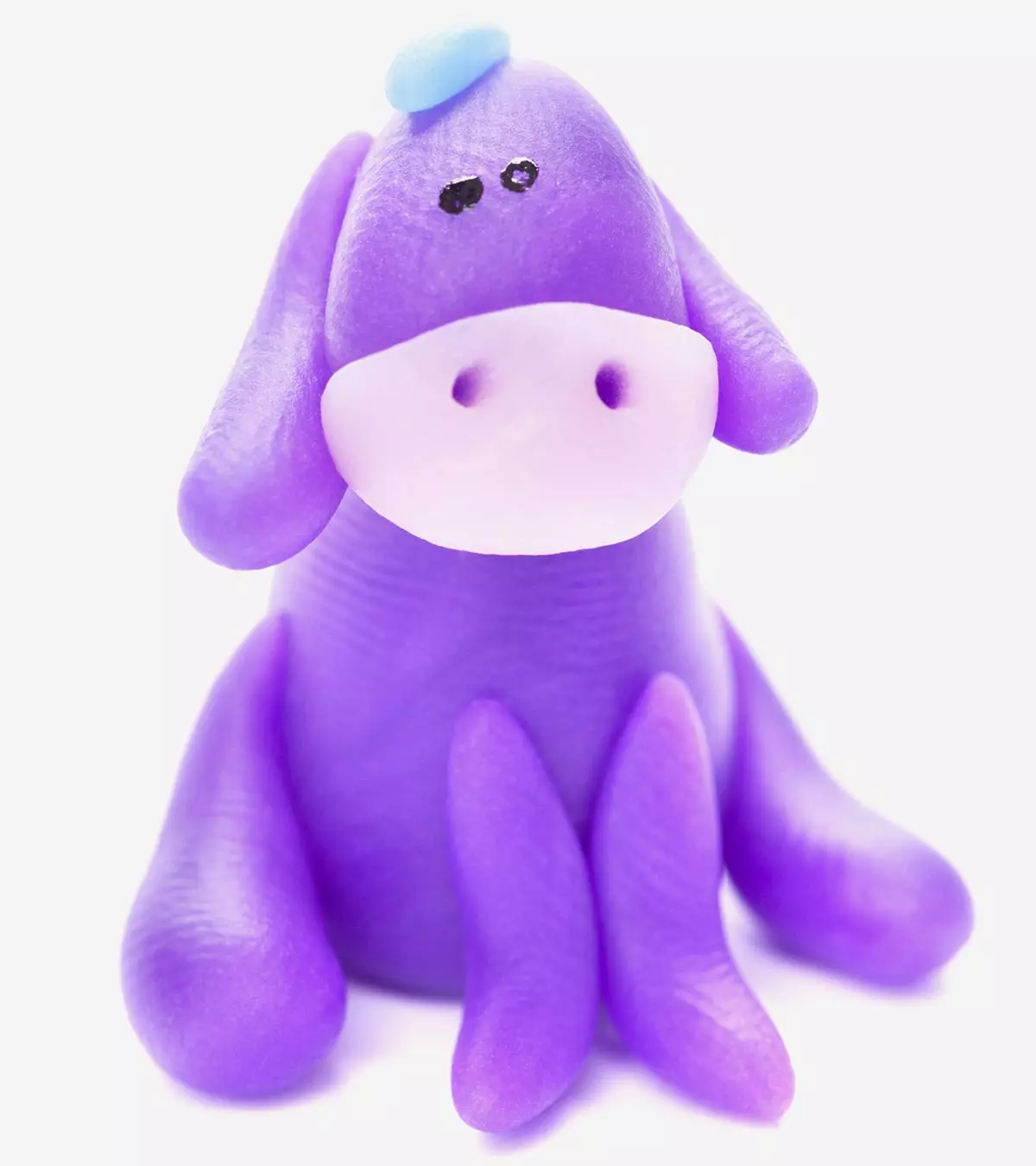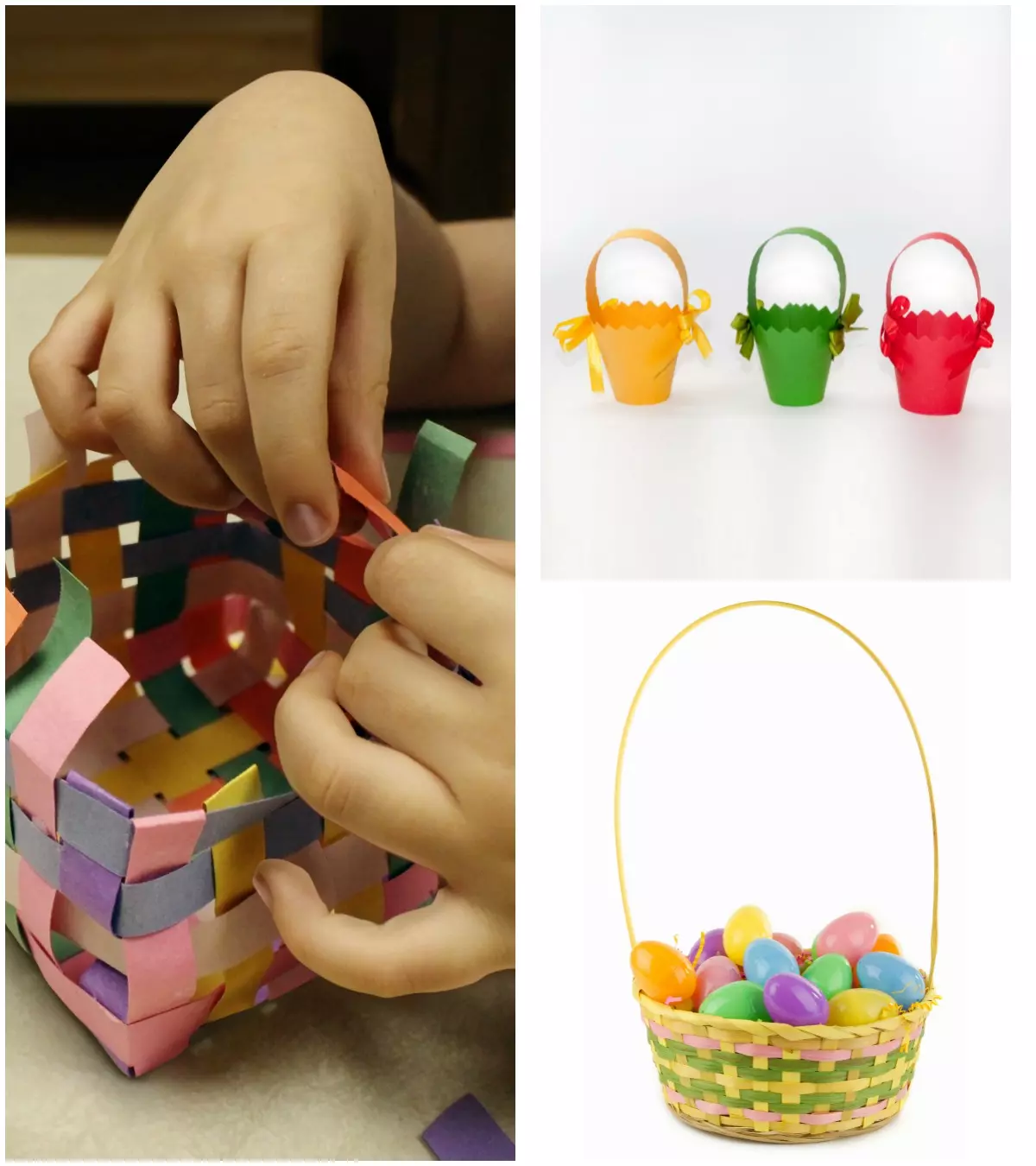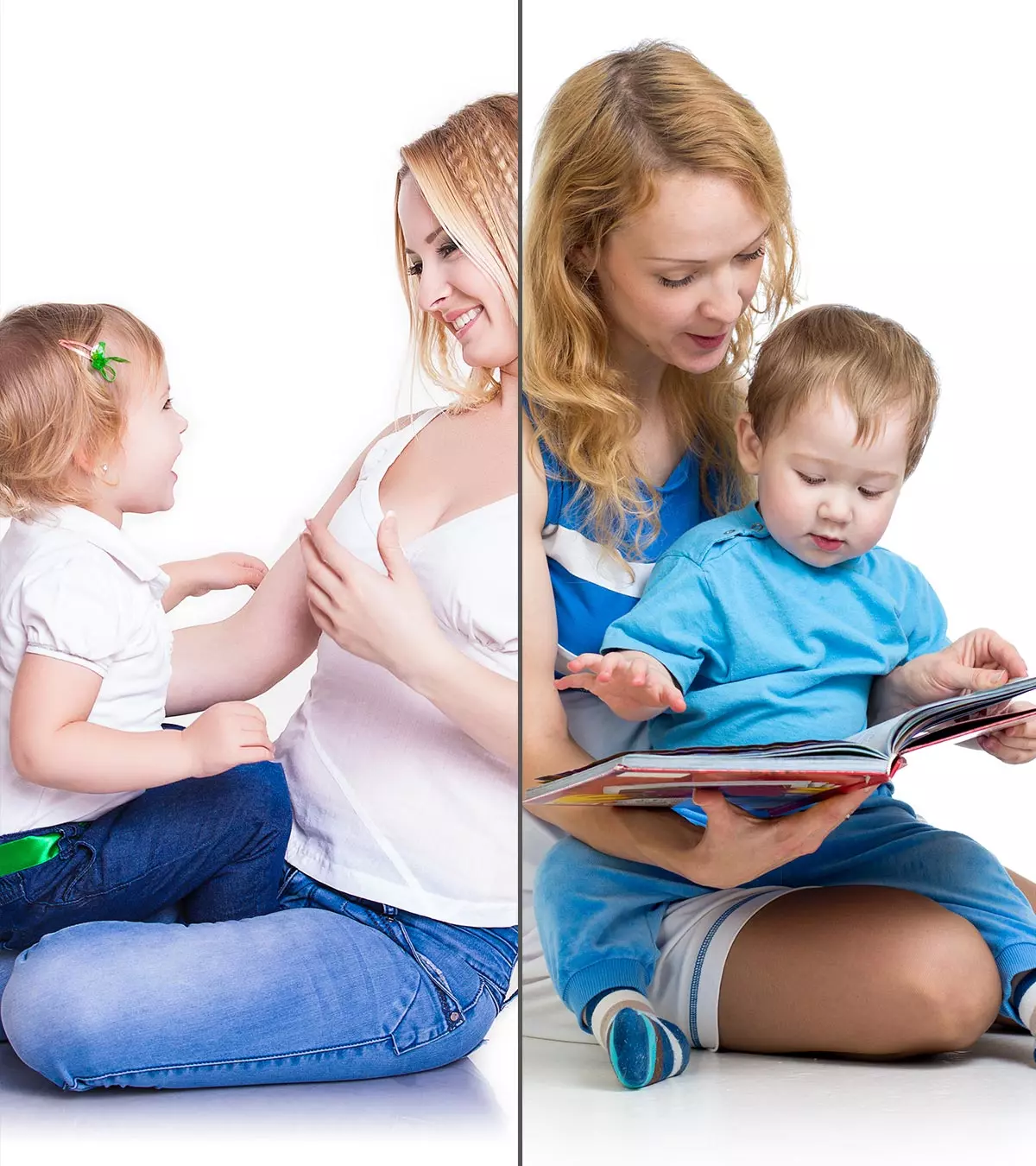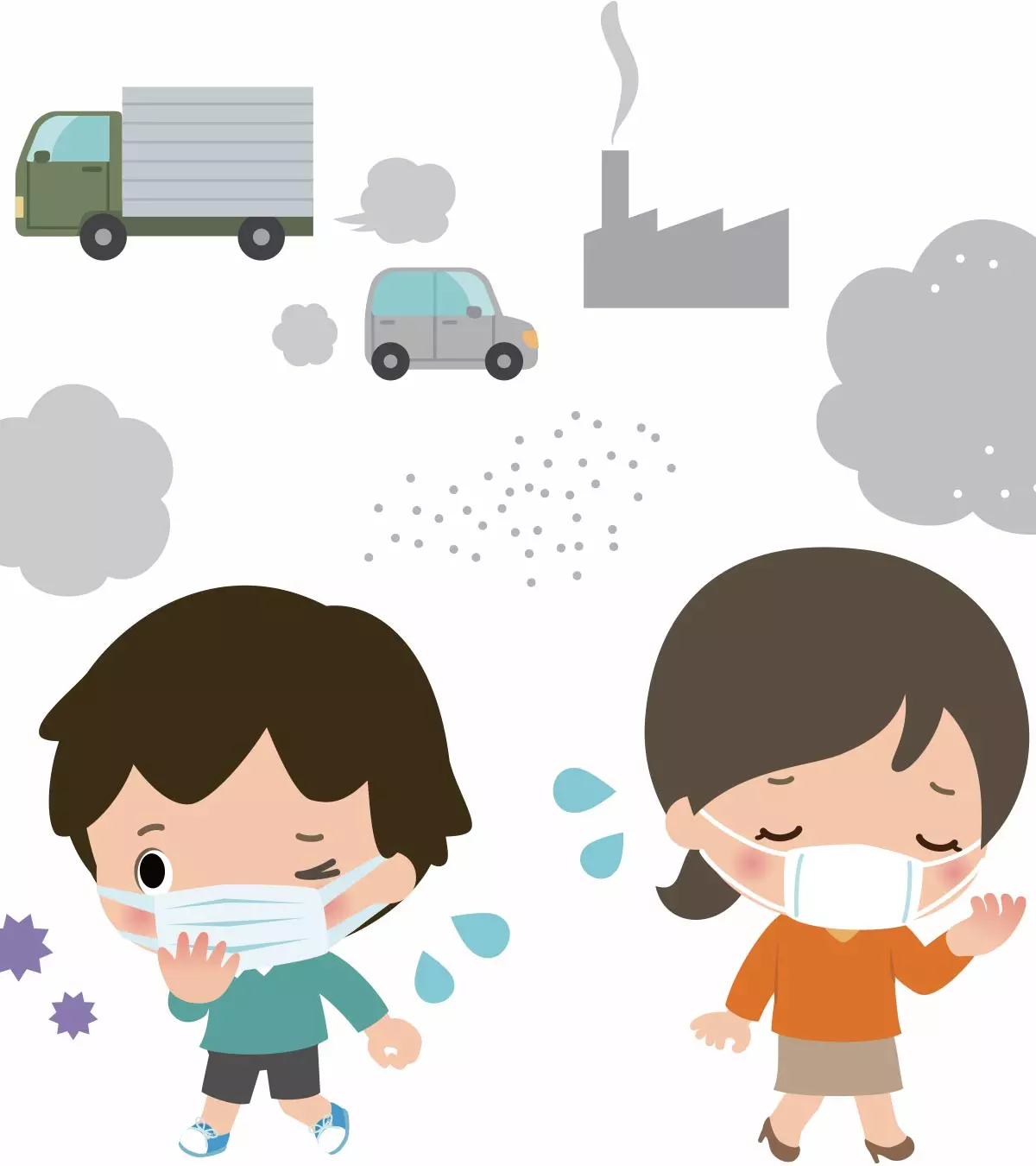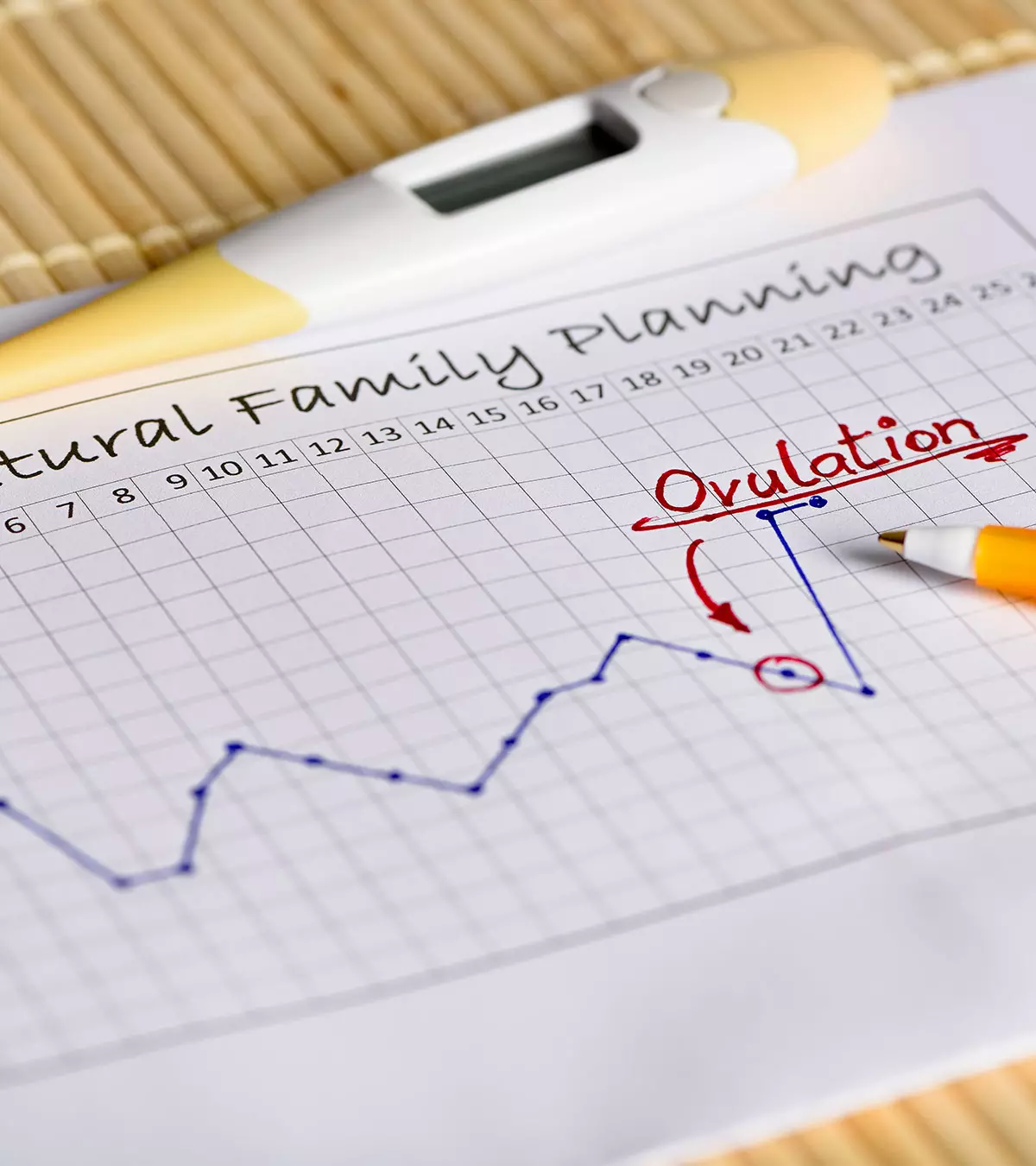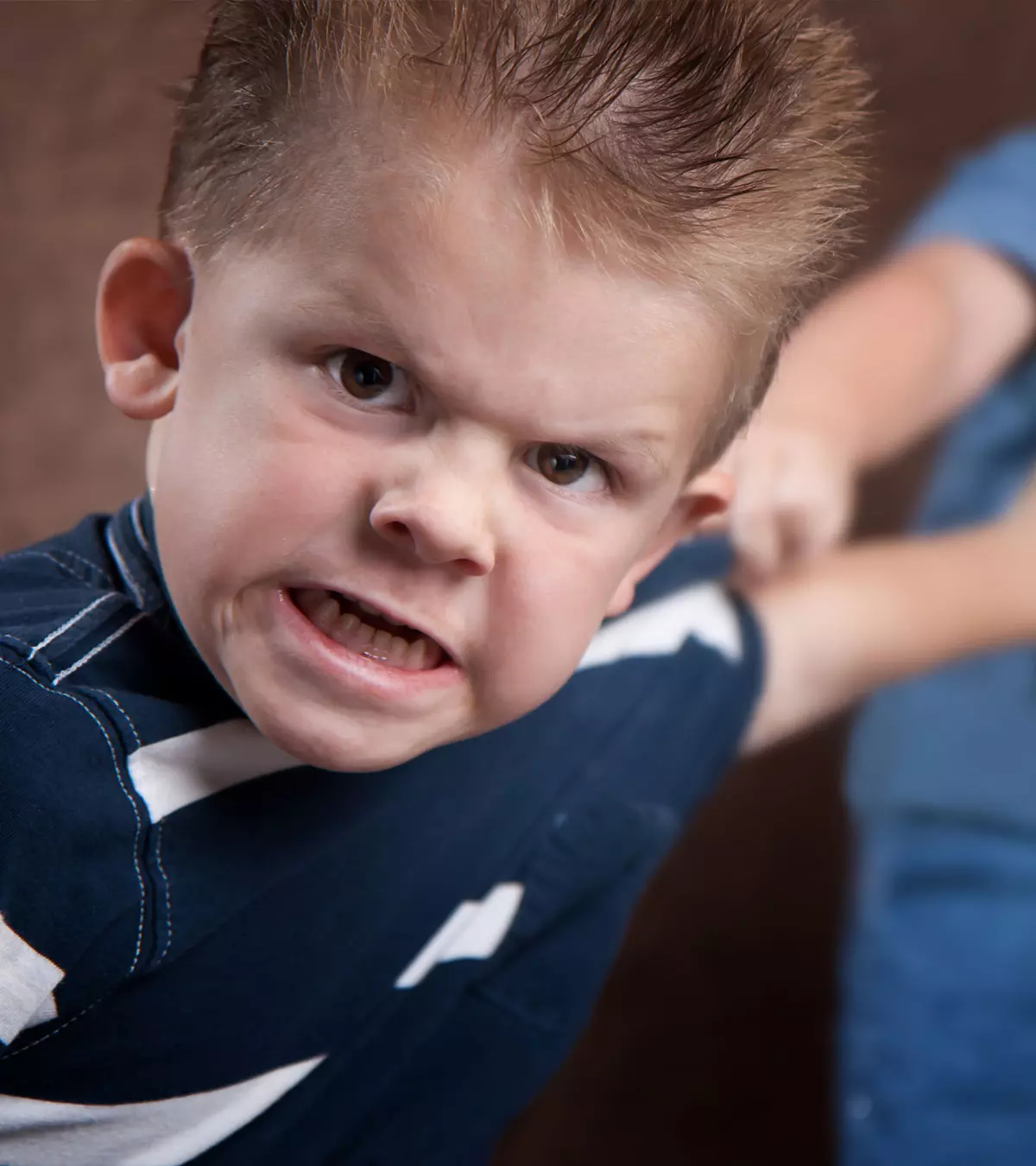

Image: Shutterstock
Many parents become anxious when they find aggression in toddlers. However, aggression can be a way of communicating feelings. It is often seen as a normal behavioral change. However, it is important to understand its cause when it becomes a pattern and goes out of control. Parents play an important role in controlling aggression in their children. But, you can control this behavior with good support strategies, better communication, love, and appreciation. If your strategies do not help, you may consult a doctor or therapist. Read the post to understand more about toddler aggression, its causes, and things you can do to prevent or manage it.

Can Aggression Be Normal In Toddlers?
Yes. Experts state that aggression is a part of the normal development process in toddlers (1). Aggression is used as a means of communication before verbal skills are established. A toddler’s aggression usually begins at the age of 17 months and tends to peak between 18 and 24 months. Toddler tantrums are a normal expression of frustration.
What Causes Aggression In Toddlers?
In adults aggression is often viewed as a positive thing, as when one aggressively advocates for what one thinks is right. In a similar way, toddler aggression can be healthy in that it represents a child’s confidence in their emerging sense of self.
However when aggression is accompanied by behavior that hurts other people, or when it becomes the predominant mode of interaction, it may be a communication that your toddler feels stressed and out-of-control. Limited social and language skills contribute to problematic behavior when their inability to articulate their needs leads to frustration. Below, we list some of the things that may trigger problematic aggressive behavior in toddlers (2):
- Not getting what they want: Toddlers can behave aggressively when they lose control over a situation. For instance, if a toddler’s sibling takes their toy from them, the little one reacts with aggression. The toddler would bite, hit, and push the sibling, or pull their hair. Aggression, in this case, is due to the lack of social skills to negotiate a truce (1).
- A mix of anger and sadness: It is quite common for toddlers to get aggressive when they are angry and sad at the same time. For example, the toddler may get aggressive when mama leaves them at daycare. They cry and hit their legs to express their disapproval of their mom going away. In a frenzy, the toddler may even hit or pinch a caretaker or another toddler who comes close to them.
- Stressful situations: Toddlers may use aggression to cope with stress. An example is being overwhelmed by excess social stimuli – like at a family gathering or a public gathering. Other triggers could be excessive heat, boredom, hunger, a transition from one activity to another, and moving into a new neighborhood.
- Temperament and social learning: No two toddlers are alike. Some children are more sensitive to the environmental stresses described above. Children who see parents with excessive inappropriate aggressive behavior can serve as a negative model for their children.
Ways To React To A Toddler’s Aggression
The ideal reaction to a toddler’s aggressive behavior consists of multiple steps. Here is what you must do when your toddler behaves aggressively:
1. Be calm
- Do not yell or shout at the toddler. Instead, stay calm and tell them what they should do and what they should not do.
- A few examples of what you can say are, “You will hurt your brother if you bite him. Say please, and ask him for the toy” and “I know you want the dessert. But you will get it, and we can all have it together after dinner.”
- A low tone is considered ideal while speaking to a toddler who has just displayed aggression. You must also use direct eye contact (3).
- Use simple yet strong words such as “Stop” and “No,”
- Hitting the toddler is likely to reinforce aggressive behavior and is never appropriate. Most importantly, it teaches them that it is okay to hit someone. The toddler may then imitate the action by hitting you or other people. Therefore, it is essential for the parents to keep their cool.
2. Understand the trigger
- Piece together what you see and recognize the trigger for problematic aggressive behavior. For instance, does your child hit when someone takes away a toy unexpectedly? Or when they are tired or overwhelmed?
- Asking a toddler to explain their behavior is typically unhelpful and may worsen the situation if they are unable to express their big feelings in words. However offering your understanding of the situation in calm, simple language can help a toddler to learn to express their feelings in words. If your toddler has advanced language skills they may be able to meet your explanation with one of their own. ”
3. Withdraw and distract
- If the toddler’s behavior is out-of-control, removing them from the situation- if possible- may be the best way to set limits on behavior. Explain why you are taking these actions but if they are very upset they may not be able to process the words you are saying. A calm soothing tone of voice will be more helpful in reducing problematic aggressive behavior. In the height of an emotional outburst, toddlers may lose their emerging thinking skills. Your child may be communicating that they need a break, or that they need more help from you in managing their big feelings.
- Distraction often works well with toddlers, no matter how silly or simple it is. For instance, showing them something like a bird flying past or introducing humor when appropriate can shift the tone and nature of an interaction.
4. Use of time-out
- A time-out is a good way of letting the toddler know that specific behaviors such as hitting and biting, are socially unacceptable and will not be tolerated. But never leave your child alone with big, out-of-control feelings. Once they have calmed down sufficiently to be still and listen, a brief time out can be useful. However, a parent should be present with the toddler both during a tantrum and during a time -out. Take the toddler out of the situation and to a place where there are no distractions; such as another room in the house or a quiet corner in the garden.
- Calmly explain what they did was wrong in a gentle tone. In the midst of a meltdown fewer words are usually better as long verbal explanations may be difficult for a toddler to process in the heat of the moment.
- Once the time-out is over and everyone has calmed down, let your child know that you love them. . Be open to what the toddler has to say and listen to them patiently. It may give you some insight into the underlying cause of the toddler’s behavior.
The above steps help the toddler calm down after a bout of problematic aggression.
How To Prevent Excessive Aggression In Toddlers?
Here are the ten things that you should do to prevent excessive aggression in toddlers.
- Set limits: Teach them boundaries: what they can do and cannot do to express themselves when they are upset. Tell them that under no circumstances can they hit or strike someone. Clear expectations help mitigate the chances of the toddler becoming overwhelmed by their emotions in the first place.
- Have clear consequences for inappropriate social behavior. A simple, clear “no” and removal from the situation will be most effective for a young toddler. For older toddlers with more language skills, some verbal explanation together with a brief time out can be useful.
- As much as possible, be consistent in your reaction. Of course sometimes toddlers will “push our buttons.” Parents often worry that a toddler’s hitting suggests some kind of long term problem with aggression. These worries may be heightened when other family members have struggled with aggressive behavior as adults. Remember that the meaning of the behavior for a toddler is different. If you remain calm and do not have an outsized reaction, the behavior is more likely to dissipate over time. Model different behaviors. By speaking calmly in the face of an upsetting situation you teach your toddler a different approach to inevitable frustration.
- Provide choices: Give adequate alternatives to the toddler to create a sense of control in them. For example, if your toddler is throwing a tantrum about playing a game when it is bedtime, give them an option of listening to a bedtime story followed by lights out. Give them the freedom to choose any book they want to read so that they feel like it is their decision to read. This is a win-win for the child and the parent.
- Create a conducive environment: Create an ambiance that is less likely to trigger aggression. If your toddler gets overwhelmed and aggressive when playing in groups, then let them play with just one or two kids. If your toddler always gets into a conflict with an aggressive cousin, then monitor their play closely so that you can help them learn to work through conflict without inappropriate aggression.
- Prepare them for change: Sudden changes can be overwhelming for little kids. Preparing the toddlers for different situations can prevent an aggressive reaction later. For instance, if you are at the park and it is about time to leave, then tell the toddler that you will all be leaving in the next 20 minutes. Depending on your child’s ability to manage transitions you may need to remind them it a few times after you tell them the first time. Telling them well before the event gives them enough time to process the information and accept it.
- Set positive role models: Toddlers imitate what they see. They learn behavior when they see that a parent or a guardian or a character from a TV or game they play is excessively aggressive. So be careful about how you are around them and also keep tabs on the kind of TV or game shows they are watching. You can then tell them how their favorite hero/parent/grandparent never hits anyone when they are angry and instead talks calmly.
- Provide an outlet: Everyone needs a way to vent out their frustration. Toddlers are no exception and need to vent out their annoyance, sometimes physically. If you sense that the toddler needs to release pent up anger or annoyance, then give them productive ideas such as skipping quickly at one place, doing sit-ups, punching in the air silently, running on a track and doing an angry dance.
- Give positive reinforcement: Consistent praise is also a significant part of preventing the toddler’s excessive aggression. Shower appreciation each time the toddler resolves a situation amicably. Tell them how nicely they behaved and how proud you are of their behavior.
Follow these steps consistently to regulate and ultimately prevent problematic aggression in toddlers.
When To Be Concerned About The Toddler’s Aggression?
Seek professional help if you constantly notice the following when a toddler is aggressive.
- Consistent limit setting fails to decrease behavior in which a toddler hurts himself or other people.
- The toddler’s behavior becomes significantly disruptive to family functioning.
- Their behavior makes it impossible for them to go to school or daycare without the risk of them harming the other kids there.
- Other parents never let other children play or sit with the toddler since he or she is deemed ‘dangerous’.
The period for which the toddler displays aggression can significantly determine if the cause is a psychological problem. Usually, if the child shows incidents of aggression for six months and more, then it could be linked to an underlying behavioral problem (5). In such situations, it is essential to seek a psychologist’s help.
Does A Toddler’s Aggression Require Intervention??
If the aggressive behavior significantly disrupts family functioning and your toddler’s ability to engage in social situations, your child is likely communicating that they are stressed. Taking time to understand and address the source of the stress is critically important. A pediatrician or therapist can take time to listen and help you make sense of the situation. They can help you to think through your unique response to the behavior and support you in setting appropriate limits.
Frequently Asked Questions
1. What is the most difficult toddler age?
Researchers have reported that toddlers aged two to three years could be most challenging. Furthermore, they found that the number of children displaying aggression and temper tantrums was highest at 30-36 months (8).
2. How does aggression affect a toddler’s development?
Aggressive behaviors may impact children’s personality development and increase their chances of suffering from a physical or mental health disorder and poor social outcomes in adulthood (9).
Aggression in toddlers is a part of normal development that displays their increasing understanding of self. So, aggressive behavior isn’t usually a cause for concern unless it accompanies traits that hurt other people or becomes a prominent part of the interaction. Not getting what they want, feeling angry or sad, and seeing parents with aggressive behavior are some reasons that trigger problematic aggressive behavior in toddlers. Toddlers usually learn to regulate emotions and manage aggression as they develop their thinking and language skills. However, you can support and guide them in understanding the triggers, setting the right examples, and demarcating appropriate boundaries.
References
- Liu et al. Understanding Aggressive Behavior Across the Life Span; National Center for Biotechnology Information
https://www.ncbi.nlm.nih.gov/pmc/articles/PMC3411865/ - Pratibha Reebye; (2005); Aggression During Early Years — Infancy and Preschool.
https://www.ncbi.nlm.nih.gov/pmc/articles/PMC2538723/ - Childhood Aggression; The University of Tennessee
https://www.yalemedicine.org/conditions/anger-issues-in-children-and-teens - 10 Tips to Prevent Aggressive Toddler Behavior.
https://www.healthychildren.org/English/ages-stages/toddler/Pages/Aggressive-Behavior.aspx - Challenging behaviour – toddlers and young children.
https://www.rch.org.au/kidsinfo/fact_sheets/Challenging_behaviour_toddlers_and_young_children/ - Anger and frustration in toddlers; Michigan State University
https://www.canr.msu.edu/news/anger_and_frustration_in_toddlers - Dryden; Excessive tantrums in preschoolers may indicate serious mental health problems; Washington University in St. Louis
https://source.washu.edu/2007/12/excessive-tantrums-in-preschoolers-may-indicate-serious-mental-health-problems/ - Temper Tantrums
https://www.ncbi.nlm.nih.gov/books/NBK544286/ - James G Scott et al. (2018); The aggressive child.
https://pubmed.ncbi.nlm.nih.gov/30294979/
Community Experiences
Join the conversation and become a part of our nurturing community! Share your stories, experiences, and insights to connect with fellow parents.
Read full bio of Claudia M. Gold
Read full bio of Rohit Garoo





